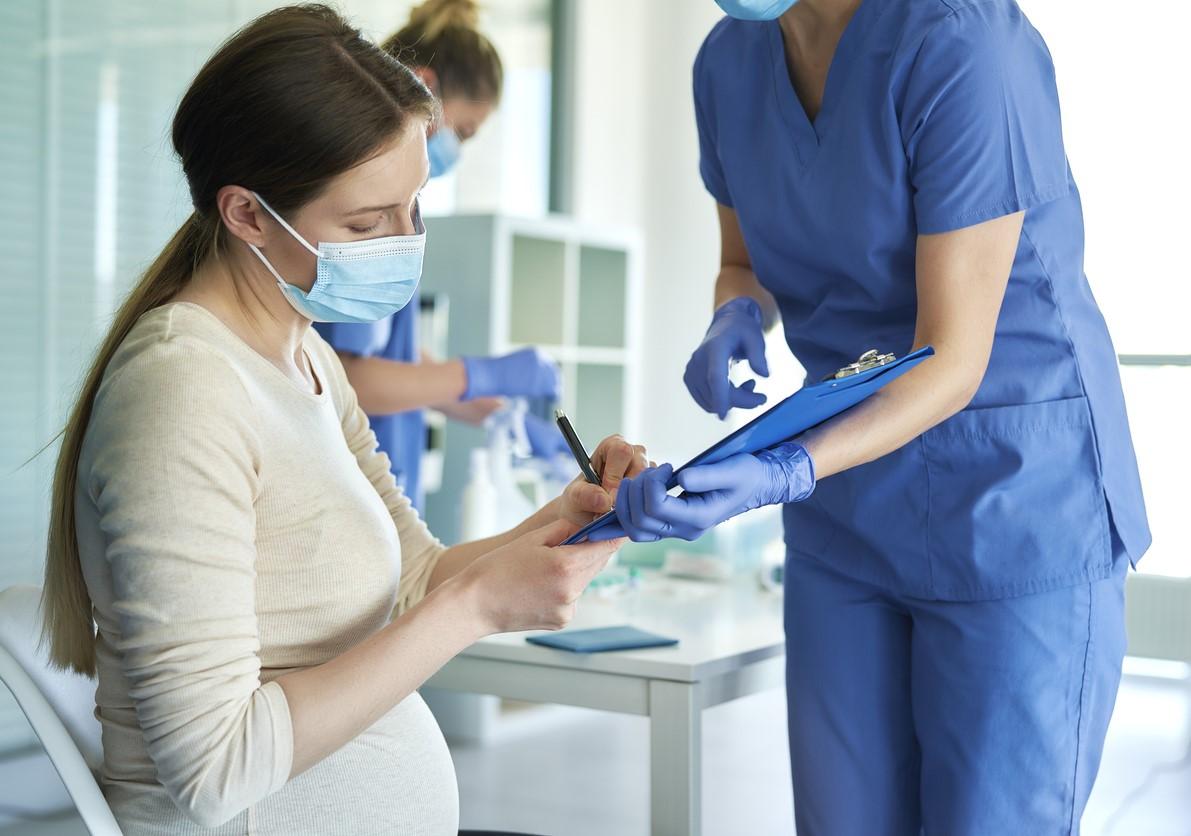Pregnant women who received at least one dose of a COVID-19 vaccine were not at higher risk for miscarriage than their unvaccinated counterparts, according to a trio of new US studies.
Miscarriage no more likely in vaccinated
In the first study, published yesterday in JAMA, researchers from the Vaccine Safety Datalink (VSD) surveillance network used diagnostic and procedure codes and electronic health records to identify and assign gestational ages of miscarriages and ongoing pregnancies from Dec 15, 2020, to Jun 28, 2021.
The VSD is a collaboration between the Centers for Disease Control and Prevention (CDC) and nine health systems that represents about 3% of the US population.
Among 105,446 pregnancies, 13,160 miscarriages occurred, while 92,286 pregnancies were ongoing. Of all pregnant women, 7.8% had received at least one dose of the Pfizer/BioNTech mRNA vaccine, 6.0% received one or more doses of the Moderna mRNA vaccine, and 0.5% received the Johnson & Johnson one-dose adenovirus vaccine before 20 weeks' gestation.
Eight percent of women with ongoing pregnancies had received a COVID-19 vaccine by 28 days, compared with 8.6% of women who experienced miscarriages. The proportion of women 35 to 49 years who miscarried was higher than the proportion with ongoing pregnancies in that age-group (38.7% vs 22.3%).
Overall, miscarriages were no more likely within 28 days of vaccination compared with ongoing pregnancies (adjusted odds ratio, 1.02), regardless of type of vaccine and gestational age. "Despite limitations, these data can be used to inform vaccine recommendations and to counsel patients," the study authors concluded.
More evidence of vaccine safety in pregnancy
Similarly, in a letter yesterday in the New England Journal of Medicine (NEJM), CDC scientists enrolled 2,456 women who were part of the agency's COVID-19 vaccine safety pregnancy registry.
Of all participants, 2,022 reported ongoing pregnancies at 20 weeks' gestation, 165 reported miscarriages (154 of whom miscarried before 14 weeks), 188 completed second-trimester follow-up before 20 weeks' gestation, 16 reported other pregnancy outcomes (eg, induced abortion, ectopic or molar pregnancies), and 65 were lost to follow-up.
Most participants (77.3%) were at least 30 years old, 78.3% were White, and 88.8% were healthcare workers. A little over half the women (52.7%) had received the Pfizer COVID-19 vaccine.
In the primary analysis, the cumulative risk of miscarriage from 6 to less than 20 weeks' gestation was 14.1%, while an analysis using direct maternal age standardization to the reference population showed a 12.8% risk. The risk of miscarriage rose with increasing maternal age.
A sensitivity analysis that assumed that all 65 women with recent contact during their first trimester had a miscarriage, the cumulative risk of miscarriage from 6 to less than 20 weeks' gestation was 18.8%. The risk was slightly lower after age standardization, at 18.5%.
"As compared with data from two historical cohorts that represent the lower and upper ranges of spontaneous-abortion risk, the cumulative risks of spontaneous abortion [miscarriage] from our primary and sensitivity analyses were within the expected risk range," the researchers concluded. "These findings add to the accumulating evidence about the safety of mRNA COVID-19 vaccination in pregnancy."
A revised risk estimate
And in response to a letter yesterday in NEJM, a separate group of CDC researchers updated its analysis of 2,456 pregnant women who received one or two doses of an mRNA COVID-19 vaccine before conception or 20 weeks' gestation.
Their preliminary findings, originally published on Jun 17, were based on telephone follow-up of the participants through Mar 30. The letter writer, Hong Sun, PhD, of Dedalus Healthcare in Antwerp, Belgium, had pointed out that the researchers had erroneously included 700 participants vaccinated with their first dose after 20 weeks' gestation, arriving at a risk of miscarriage by week 20 of 12.6%. "This calculated metric is misleading and does not reflect the real risk of spontaneous abortion," Sun wrote.
The researchers agreed with Sun's assessment. Since the original analysis, the researchers had completed follow-up for the remaining pregnancies in those vaccinated before 20 weeks' gestation and enrolled more participants in the pregnancy registry.
They then used life-table methods to perform an updated analysis to determine the cumulative risk of miscarriage from 6 to less than 20 weeks' gestation. The new risk estimate was only slightly higher. "The estimated risks (14.1% overall and 12.8% in age-standardized analyses) are consistent with the risks of spontaneous abortion reported in the general population," the authors wrote.




















